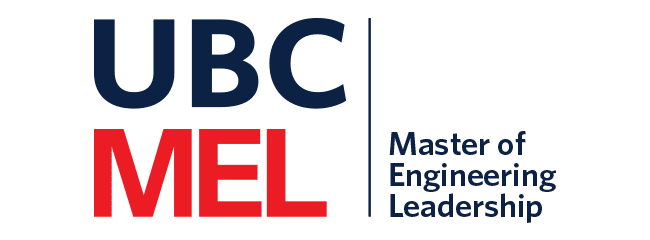
Guest Speaker Series: Ian Cruickshank on Career Transitions

Ian Cruickshank, Adjunct Professor at the University of British Columbia and President and CEO at Leadbox, ran a seminar for MEL students where he discussed making career transitions and what it takes to be a manager.
With an undergrad degree in management from Bishop’s University and later completing a Masters in Business Administration and IT Management at UBC in 2010, Cruickshank regularly presents and lectures on Information Technology, Digital Marketing, and Career Development.
Earlier in his career, Cruickshank was with two of Canada’s largest media companies, Rogers and PostMedia, in sales and sales leadership roles. Since then, Ian has spent his time consulting on digital disruption and as the head of sales and marketing for a social media marketing firm and, more recently, for an advertising technology company. His extensive experience in business and professional development helped provide useful career insights for MEL students.
As MEL students look toward leadership roles, they may be considering a new role as a manager or a significant career change. All of these moves typically require deliberate effort to make a reality. During the session with Cruickshank, he provided students with the concepts and building blocks to set themselves up for successful career advancement.
Planning for your future
Cruickshank focused on several considerations for students as they start to plan for their future roles and step into their managerial roles.
He outlined appreciating one’s strengths and weaknesses and creating a career plan as essential first steps. Cruickshank advised MEL students that they should look to improve on their strengths and weaknesses by:
Continuing to be proactive about learning.
- Successful individuals focus on gaining personal and professional skills, knowledge and abilities in response to and in anticipation of changing performance requirements.
Connect with a great mentor.
- Mentors guide you in developing your goals for your professional career. They’ll help you hone the plan for executing your professional path to achieve those goals.
This was followed by 4 key areas to identify as part of your own career plan, which included:
- Write a plan down that includes what career path(s) you want to pursue and goals that you want to achieve.
- Be specific and realistic with your goals.
- Get support from your mentor, director supervisor, perhaps, even those who report to you on understanding if the career you want to pursue is best for you.
- Continue to work on your plan; over time, it may change.
Cruickshank advises MEL students to understand and appreciate that career paths a lot of times are not direct. Getting from point “A” to point “B” in your career may involve pursuing a variety of new opportunities.
Transforming into a leader
Cruickshank also posed the consideration to the MEL students that, as you move into a managerial position, how do you transform yourself into a leader?
He outlined elements of this this further, by noting that you must be prepared to demonstrate and adopt the following behaviours and characteristics:
- Become more of a generalist and understand the whole business and not just one function.
- Become more of an integrator and make decisions for the good of the organization instead of just the team or department.
- Become more of a strategist and understand the big picture and not the specific details of a department.
- Become more of an architect and design organization system and just don’t focus on specific department elements.
- Become more an agenda setter and understand what challenges to tackle first and not just focusing on issues as they arise.
- Become more of diplomat and engage all stakeholders not just those within your team.
- Start to inspire everyone – not only your direct team.
These characteristics will allow MEL students to make an impact in their industry as future leaders.
Concluding the session, Cruickshank touched on his research that has highlighted four traits that can predict how far managers will progress. These are how much curiosity, insight, engagement, and determination they demonstrate in their role.
Cruickshank’s suggestions are valuable considerations for anyone who is interested in applying additional techniques to become an effective leader. They also provide valuable guidance and advice to our cohort concerning possible career transitions into managerial positions.
Are you ready to transition to a leadership role in your field? Discover how the Master of Engineering Leadership or Master of Health Leadership and Policy can prepare you for that transition.
Application Deadlines
The online application portal for the January 2025 has closed.
Get ready to apply!
Admissions for the 2026 intake will open on January 1, 2025.
How to ApplyAssess your Eligibility
Determine if your professional experience and academic background make you a fit for your desired program.
Start AssessmentJoin us for an
Info Session
Sign up for our latest online information sessions and discover what our programs have to offer.
Sign Up Now

